Arab League calls for UN intervention in Ethiopian dam dispute

Arab League Secretary-General Ahmed Aboul Gheit on Wednesday unveiled the organisation's decisions on the Ethiopian dam dispute. The foreign affairs heads of member states unanimously endorsed sending a formal request to the UN Security Council to intervene in the issue.
"We call on the UN Security Council to assume its responsibilities in this regard by holding an urgent meeting to take the necessary steps and launch an effective negotiation process to ensure a fair, balanced and legally binding agreement," reads the communiqué issued by the organisation.
The extraordinary summit was called by the Egyptian and Sudanese authorities after Ethiopia's latest refusal to accept the demands of both states. Egypt and Sudan, both countries bordering the Nile, are against the aquifer project. Cairo depends on the Nile for 90% of its freshwater reserves, while Khartoum sees the functioning of its own infrastructure threatened.
The convening countries have repeatedly requested the participation of third party institutions such as the European Union, the United Nations and even the United States in the mediation work alongside the African Union, without success and with Ethiopia's outright rejection.
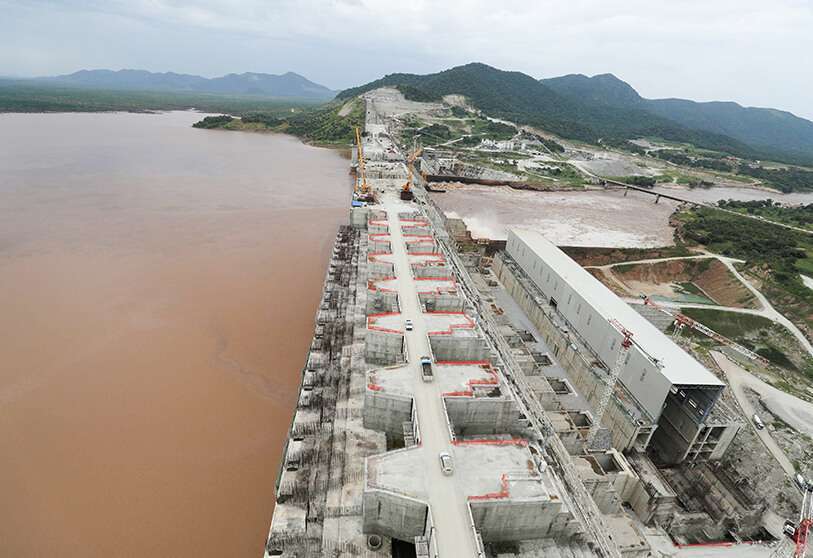
Washington was on the point of being decisive last year in unblocking the dispute, but Ethiopia abandoned the initialling of the agreement amid accusations against former President Donald Trump for backing Egypt.
During the latest meeting, held on Tuesday in the Qatari capital of Doha, the 17 foreign ministers of the organisation's member countries sought to unblock the protracted blockade that is preventing the operation of infrastructure that Ethiopia says would lift millions of citizens out of poverty and turn the country into a major energy exporter.
Qatar's hosting of the conference is also a significant factor, as it marks the official resumption of relations between Doha and Cairo after years of regional disputes. The Al-Ula summit in January laid the groundwork for a future understanding that has materialised in this new Arab League meeting.
Current development of the dam is around 80 per cent complete and it is expected to reach full capacity in 2023. If finally commissioned, the dam would become the largest hydroelectric power plant in Africa and the seventh largest in the world, according to local media.
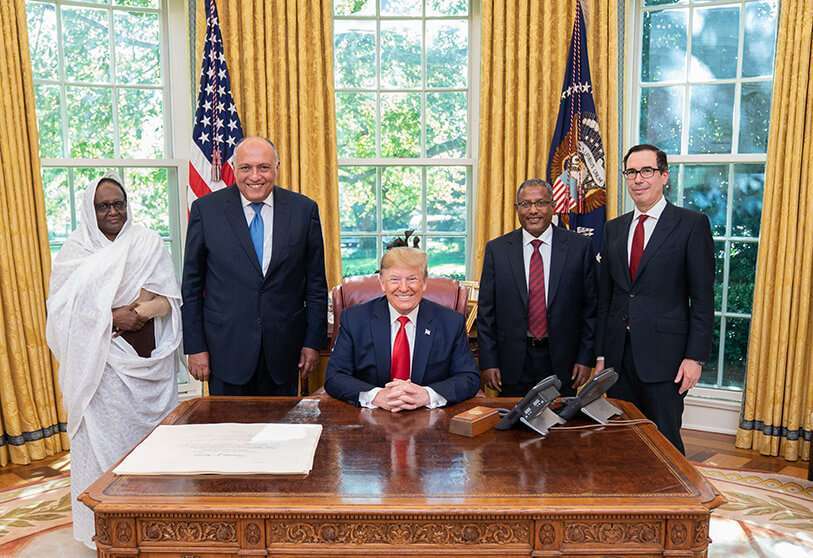
Delegations from Sudan and Egypt agreed this month to press Ethiopia to negotiate a final agreement on the filling and operation of the dam that includes an effective and binding mechanism to resolve future disputes. Tuesday's meeting is part of this context, although Ethiopia is reluctant to make its project conditional on its neighbours' demands.
Cairo is exploring diplomatic channels within the current negotiating framework. However, Egyptian Foreign Minister Sameh Shoukry stated that in the event of a breakdown in talks and a possible threat to the lives of Egyptian or Sudanese nationals, both countries would have "a responsibility to defend their people".
In this regard, Egyptian President Abdel Fattah al-Sisi stated in April that "all options are open if a drop of water belonging to Egypt is touched", following the latest failure of negotiations in the Democratic Republic of Congo.
The main stumbling block then was defining dates for the filling of the dam's reservoir, the first phase of which was completed in August last year. The next cycle is scheduled for mid-July, when the rainy season begins in Ethiopia. However, Egypt has said that, without an agreement, this phase would generate a lot of tension and "unimaginable instability".
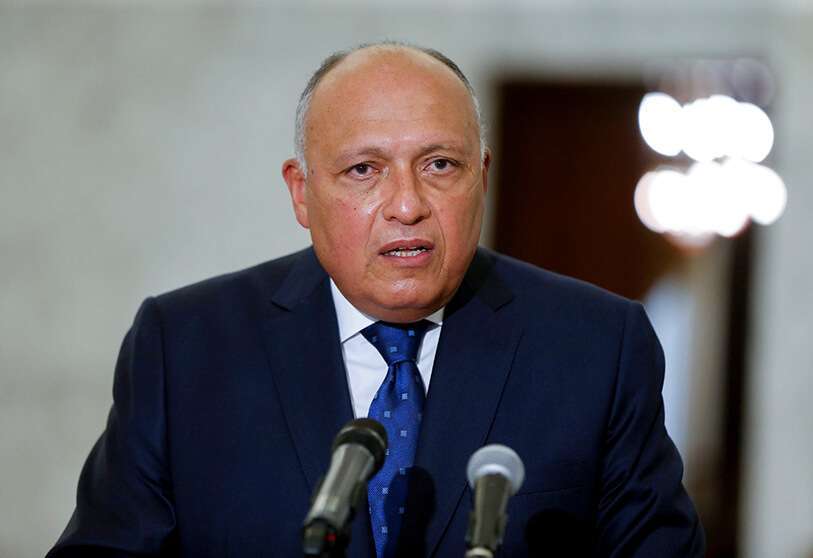
The Arab League has demanded that Ethiopia "refrain from taking unilateral measures" that harm the water interests of Egypt and Sudan, including refraining from filling the Renaissance Dam reservoir without an agreement on the rules of the filling and capping operation, in reference to Ethiopia's plan to complete the second phase of filling the dam in the rainy season.
Aboul Gheit stressed at a press conference afterwards that Egypt and Sudan's "water security" is part of regional security interests, and assured that Arab countries will push for an urgent Security Council session on the decade-long dispute.
Arab League representatives agreed to support Egypt and Sudan in the dispute. Qatari Foreign Minister Mohamead bin Abdulrahman al-Thani said: "There is a united Arab position.
For their part, the Sudanese authorities announced on Monday that they were open to discussing an interim agreement on the basis of a number of minimums. Yasser Abbas, Sudan's irrigation minister, said Sudan would approve the filling of the dam "if Ethiopia reaches a binding agreement with both Sudan and Egypt".
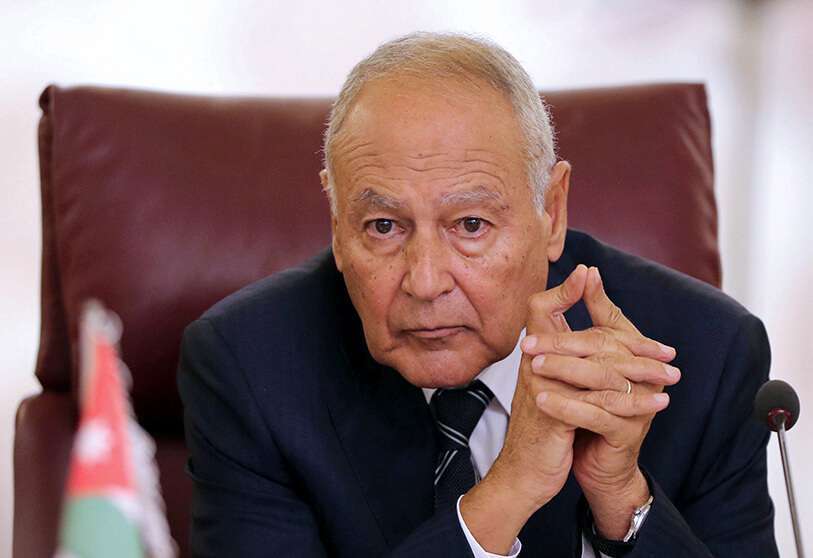
Following the release of the Arab League communiqué, the Ethiopian foreign ministry issued a letter to the organisation. In it, Addis Ababa said it was "dismayed" by the resolution and rejected the decision "in its entirety".
Ethiopia has slammed the Arab League, noting that this is not the first time it has issued a statement "on its erroneous positions" on the dam, and claims that the organisation "has squandered its opportunity to play a constructive role".
"It should be very clear that futile attempts like this to internationalise and politicise the Renaissance Dam will not lead to sustainable regional cooperation in the utilisation and management of the Nile," the Ethiopian ministry said. "Ethiopia is exercising its legitimate right to use its water resources in full respect of international water laws and the principle of not causing significant harm".
Addis Ababa claims to have made "every effort to accommodate in good faith" the concerns of Cairo and Khartoum, and has accused them of intentionally undermining the possibility of defining a joint roadmap during the latest trilateral negotiations in Kinshasa.
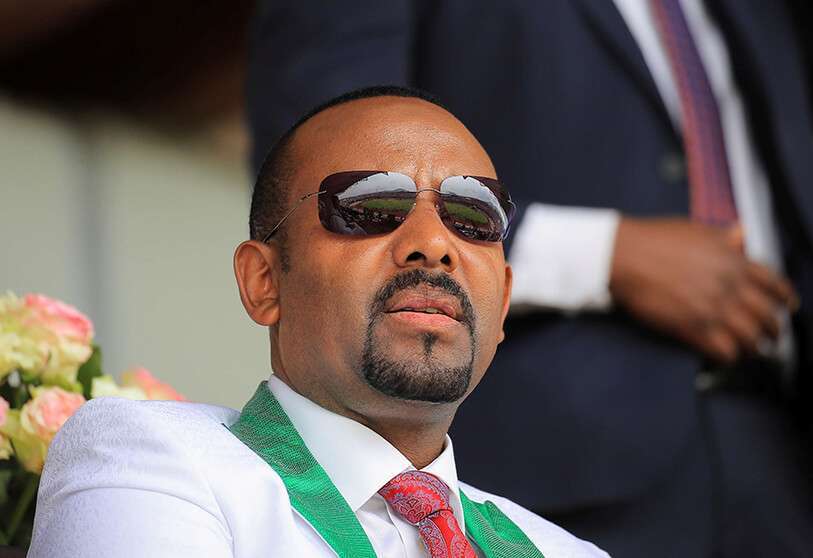
The Grand Ethiopian Renaissance Dam (GERD) has been the subject of ongoing friction between Egypt, Sudan and Ethiopia since the latter began construction a decade ago.
The project promised $4.6 billion in revenue, which would be a lifeline for the Ethiopian economy, as well as a respite amid the political tension following the postponement of general elections from August 2020 to June 2021 and the devastating conflict in the Tigray region.
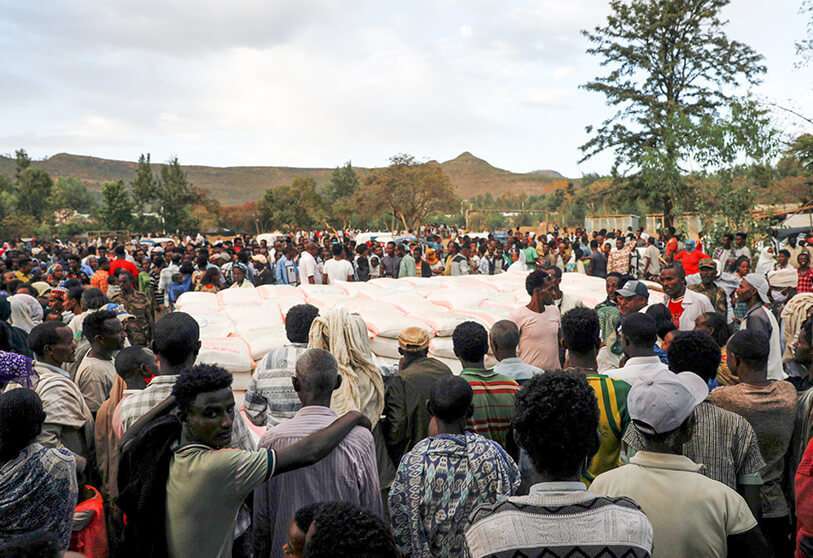
Egypt relies heavily on freshwater from the Nile and Sudan fears that its water quota will be affected. For this reason, both have insisted since the start of negotiations that measures be taken to protect downstream countries in the event of drought during the dam filling process.
Ethiopian Prime Minister Abiy Ahmed added fuel to the fire by announcing in May the construction of 100 small and medium-sized dams in different parts of the country, while Egypt again lashed out at the declarations in what was a further protraction of the conflict, which promises to perpetuate itself in the coming months.








